Why Is My Dog Coughing and What Can I Do About it?

By Evelyn Harcourt
octobre 10, 2024 - 1 min read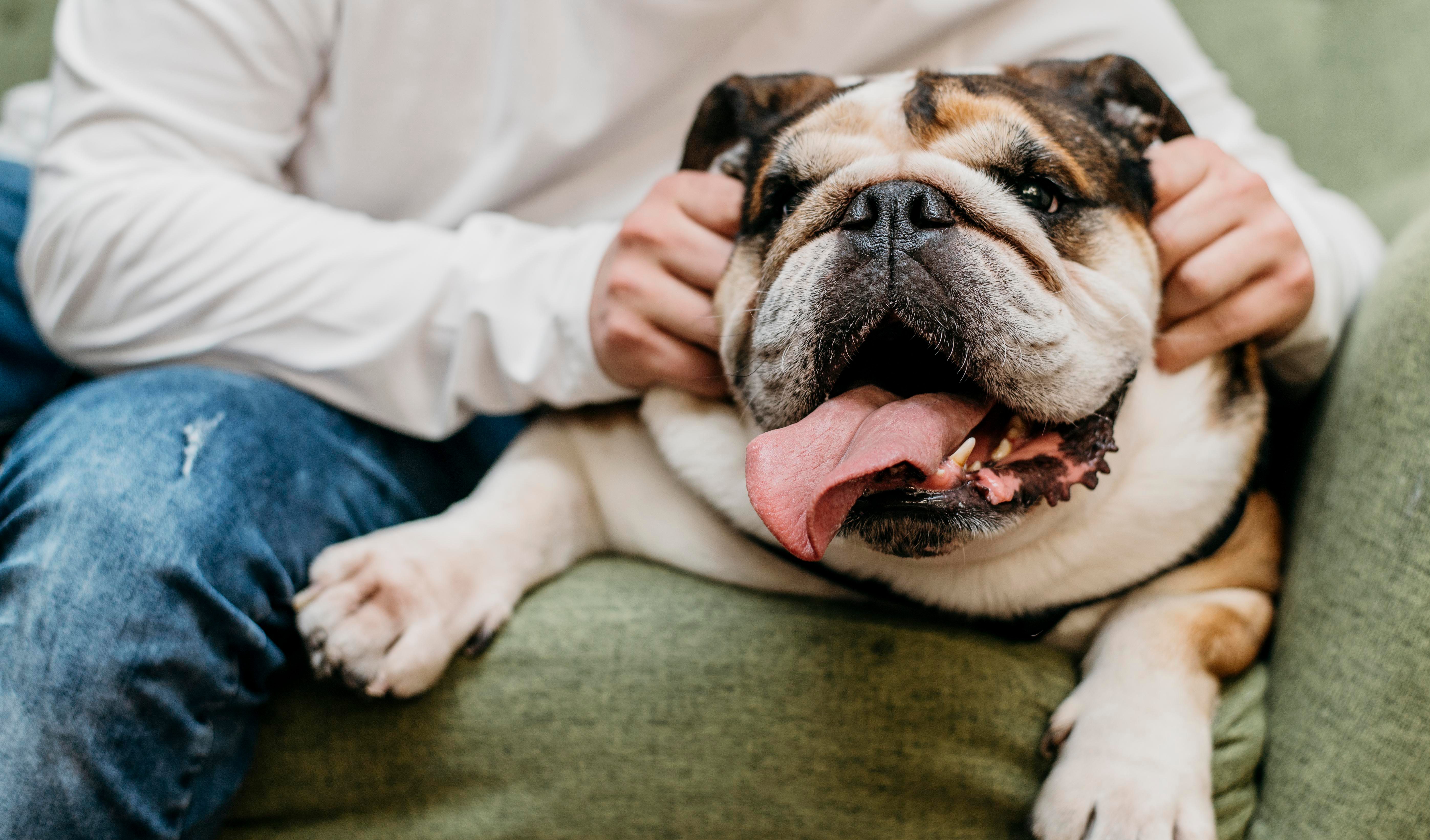
Most dogs will develop a cough at some point in their life. For the vast majority, this will be short-lived and with no lasting effects. However, a cough can indicate something more serious, so it is always worth having your dog checked over by your vet.
This article explores the many reasons a canine cough will develop, and discusses the diagnostic tests most commonly used, as well as the relevant treatment options.
There’s also some great advice on what owners can do from home to help their furry friend.
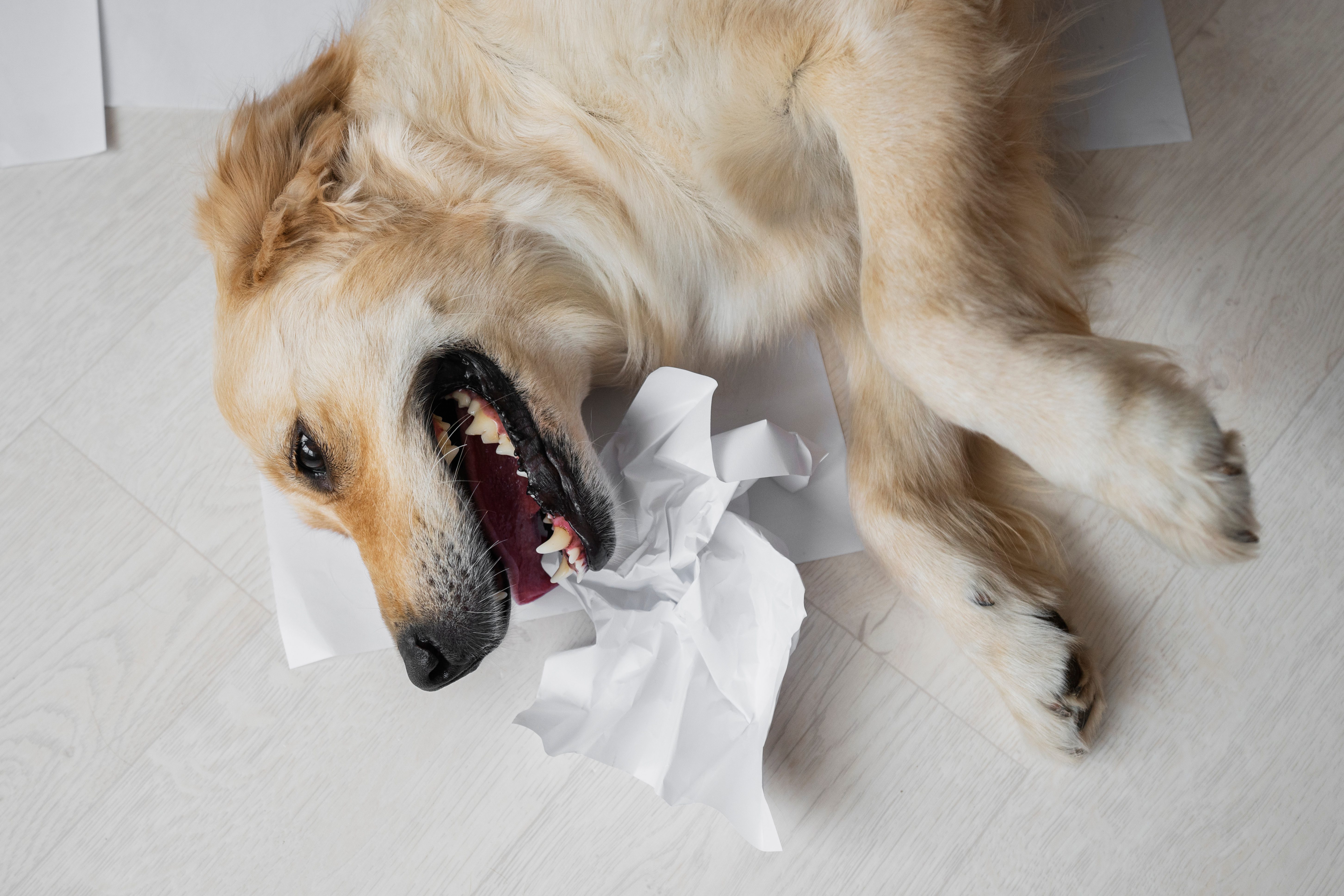
10 Reasons Why Your Dog is Coughing
A cough is not a specific sign and occurs for a range of different reasons. When a vet is determining why a dog is coughing, they’ll consider their age and breed, as well as their recent history.
For example, a young dog who has recently been kennelled is likely to have ‘Kennel Cough,’ while a senior King Charles Cavalier may well have heart disease.
Let’s look at some of the more common causes of a canine cough:
Kennel Cough
Those with kennel cough are typically younger dogs who have low levels of natural immunity and who have not been vaccinated. The cough generally starts about one week after exposure to an infected dog. As well as kennels, dogs can become infected anywhere they have contact with other dogs e.g. doggy day care, dog park, or the groomers.
For most patients, symptoms remain mild and last no longer than a week or two. Some dogs benefit from antibiotics and pain relief, so it is important to have them checked over by a veterinarian. As your dog is infectious to other dogs, keep them well away until their cough has resolved.
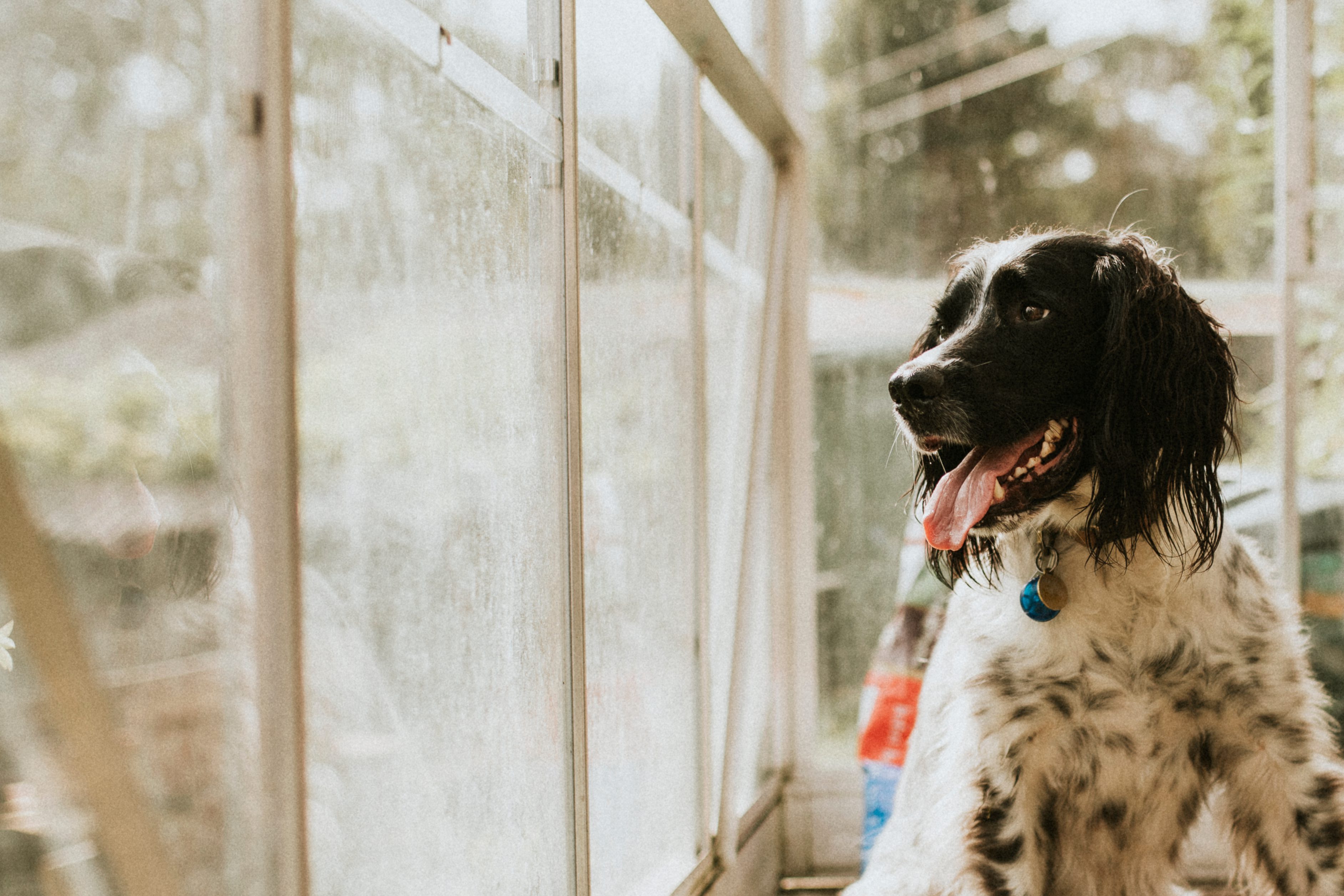
Chronic Bronchitis
We classify bronchitis as ‘chronic’ when it has been ongoing for two months or more. As well as a cough, your dog may experience signs such as wheezy breathing and an inability to keep up when out and about.
Chronic bronchitis is not the easiest condition to diagnose, and a number of tests (such as a chest X-ray and Bronchoalveolar Lavage) may be needed to reach a diagnosis.
Treatment can include steroids to reduce inflammation, antibiotics to treat secondary infections and cough suppressants. It also helps to keep dog’s a healthy Body Condition Score and to minimise irritants (like smoke and dust) in the home. While most dogs won’t be cured, the majority can be well managed.
Laryngitis
Canine laryngitis is becoming increasingly recognised within the veterinary world. The larynx (within the throat) becomes inflamed due to an infection, or irritant within the air. Less commonly, it is the result of an injury after intubation, during a general anaesthetic. As well as a harsh cough, dogs may find it difficult to swallow and can develop a hoarse bark.
Your vet can treat the symptoms with medications such as steroids or NSAIDs, as well as cough suppressants where indicated. From home, you can keep your dog comfortable by offering warm, wet foods and ensuring the air is clear and well-ventilated.
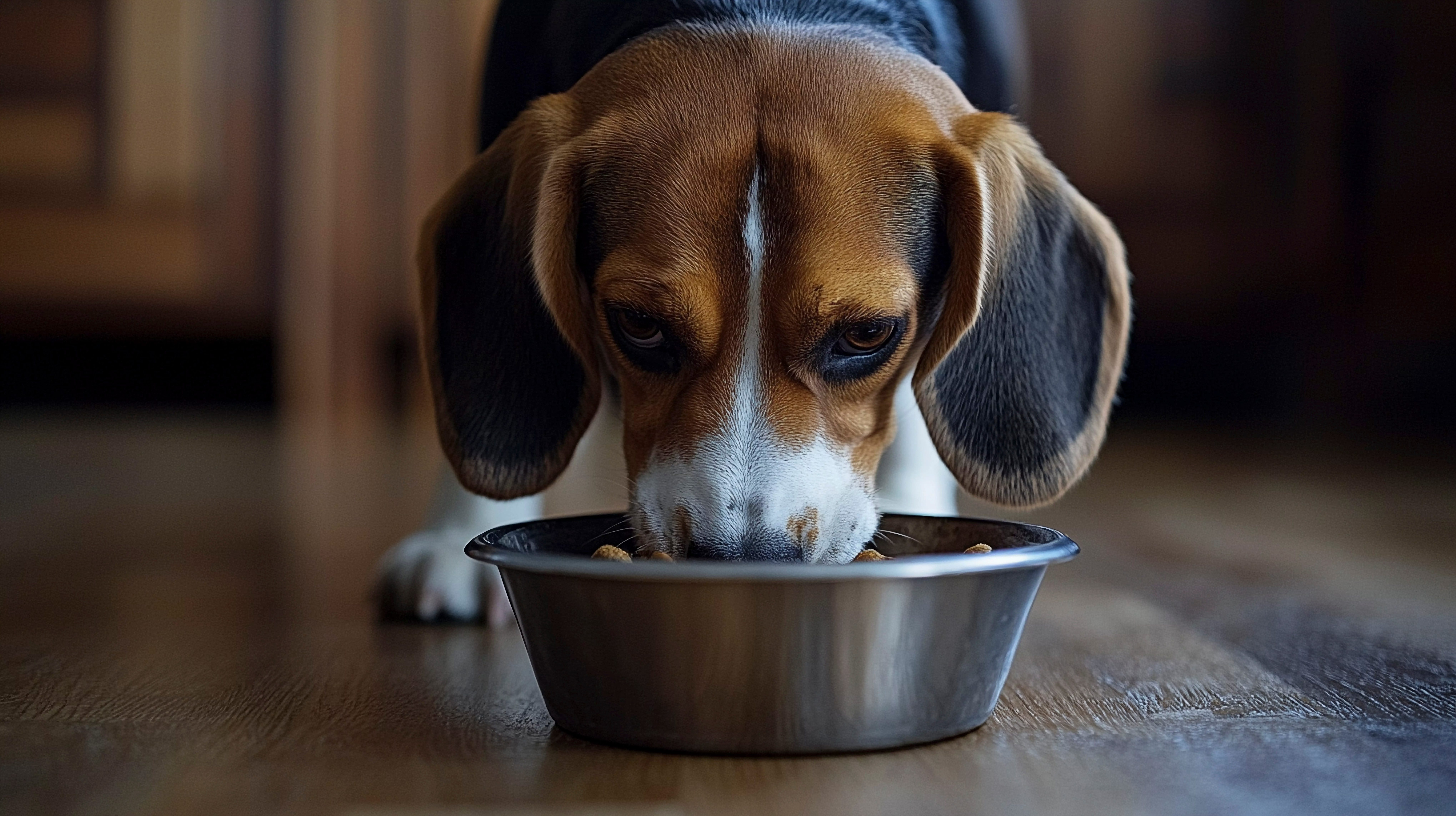
Heart Disease
While heart disease can affect a dog of any age, it is usually seniors who are affected. Dogs can develop a wide range of cardiac diseases, with some of the most common being mitral valve disease and dilated cardiomyopathy.
As the lungs become congested with excess fluid, your dog may develop an ongoing cough. This is often worse in the mornings.
Diagnosis of cardiac disease is usually reached via tests including chest X-rays, cardiac ultrasound and/or ECGs. The aim of therapy is to slow progression of the disease and reduce the clinical signs.
This can include the use of medicine such as diuretics to drain excess fluid and ACE inhibitors to lower blood pressure. Dogs may also be advised to follow a low sodium diet.
Pneumonia
Canine pneumonia can be broadly classed as viral, bacterial or fungal. As well as a cough and trouble breathing, a dog with pneumonia might have a fever, lethargy and a reduced appetite.
While you aren’t likely to contract pneumonia from your dog, there would be a small risk to other dogs, especially those who are very young or old. In addition to fluids, steam treatment, and antibiotics, your dog will need to rest and limit its physical activity as it recovers.
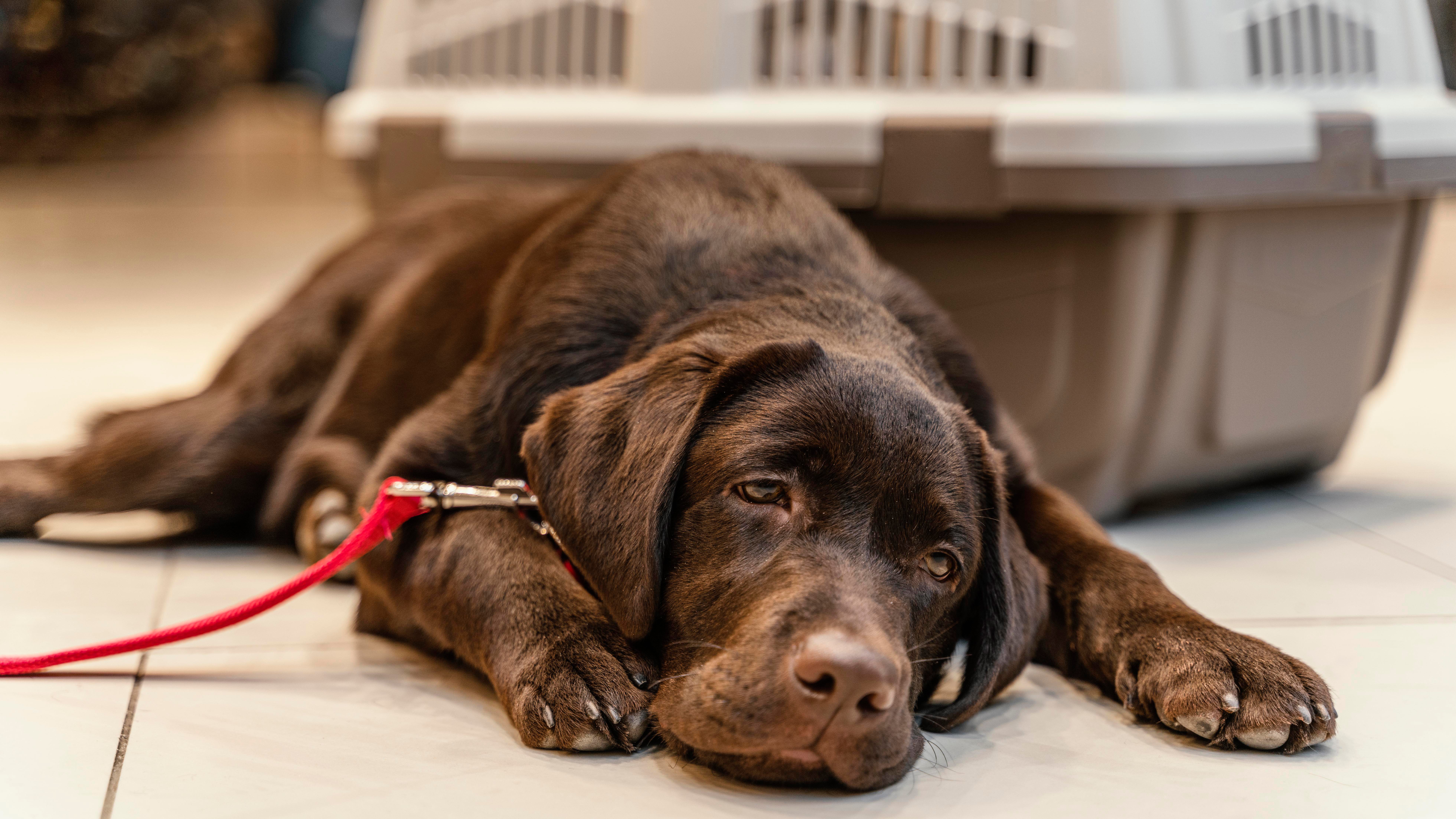
Tracheal Collapse
We tend to see a tracheal collapse in smaller breeds, such as the Yorkshire Terrier, Pomeranian, and Pug. For most, there will be a genetic component to their disease. Some call the cough a ‘goose honk’ cough, as it is harsh and dry.
Though some dogs are treated surgically, most are managed medically. This can mean a combination of medicines such as bronchodilators, anti-inflammatories, and cough suppressants. It also helps to keep these patients slim and to stick to body harnesses rather than neck collars.

Lungworm Disease
Lungworm is prevalent in the UK and is transmitted by slugs, snails, and the trail they leave behind. Any dog can be infected, but usually, younger and more ‘curious’ dogs develop lungworms. In addition to a cough, signs can include fatigue, bruising, bleeding, and pale gums.
The parasite is usually confirmed via a blood test, and early treatment means an excellent prognosis. Sadly, advanced lungworm disease can be fatal, and it is not a disease that can be passed on to humans.
Canine Influenza
Symptoms of flu include cough, runny nose, lethargy, and fever. It is highly contagious among dogs, and some of the strains involved include H3N8 and H3N2.
As this is a viral infection, antibiotics would not be indicated unless the dog also has a secondary bacterial infection. For most patients, treatment is all about supportive care from home.
This can include keeping them warm, rested and well fed. It can also help to have your dog in a steamy room (the bathroom during a hot shower), to help relieve congestion.
There is currently no evidence that dogs can transmit flu to people.
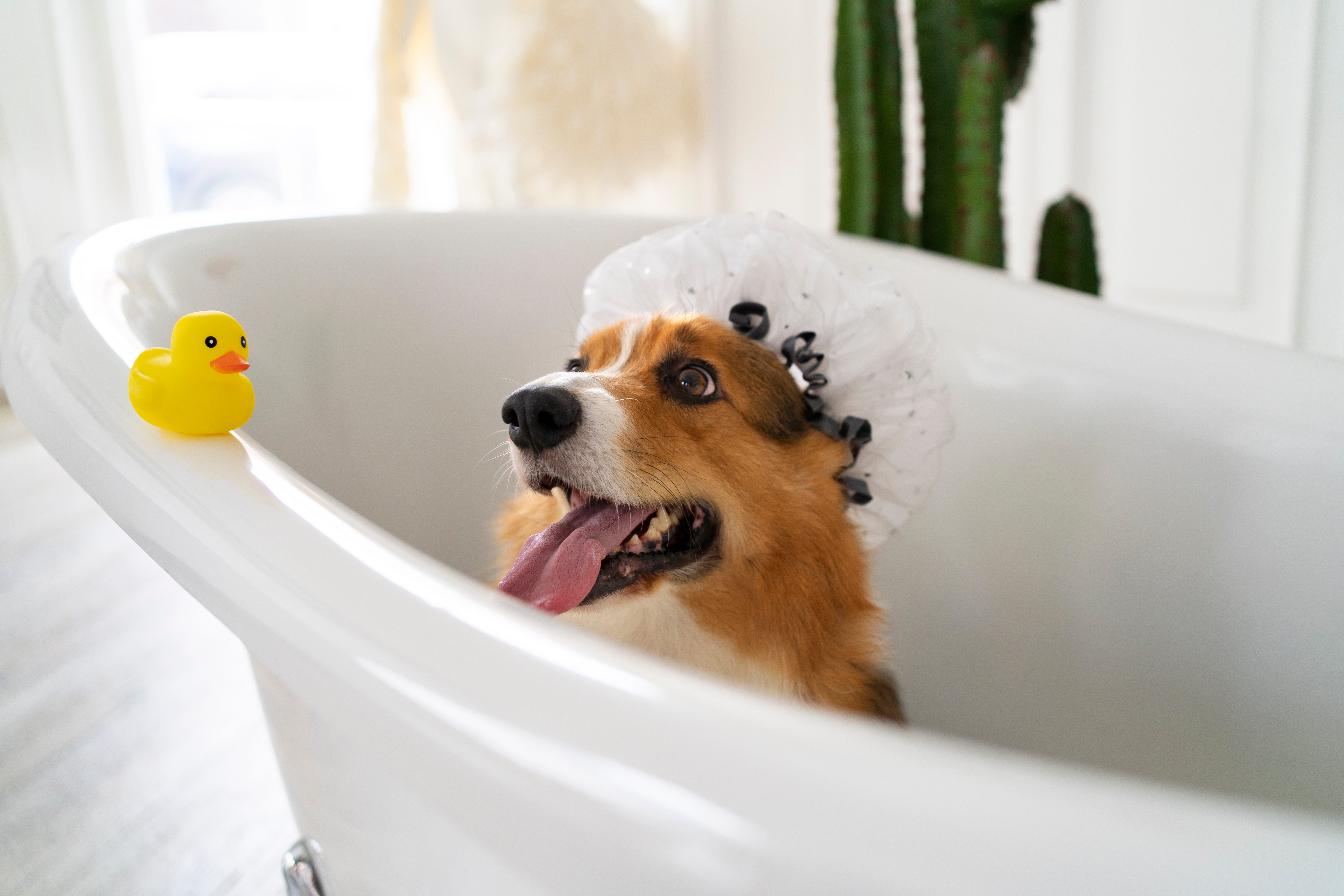
Irritants
Much like for humans, irritants in the air can cause a dog to sneeze, snort and cough. Some of the most common irritants include cigarette smoke, air fresheners, mould and dust.
A house renovation would be a common time for a dog to start reacting to dust, and to develop a mild cough.
Pleural Effusion
Fluid can build up in the chest cavity for several reasons, such as heart failure, cancer and lung lobe torsion. As well as a cough, you may notice your dog is breathing rapidly and is lethargic.
To determine what is causing the fluid build-up, your vet may perform a thoracocentesis (using a needle to remove the fluid). Sometimes, a chest tube will be placed so fluid can continue draining.
When to Seek Help for Your Dog’s Cough?
Most coughs last one to two weeks, and a cough that is persisting beyond this could be a sign of something more sinister.
It is also suggested to seek a vet's opinion if your dog has other symptoms, such as lethargy, a snotty nose, weight loss, laboured breathing or a reduced willingness to exercise.
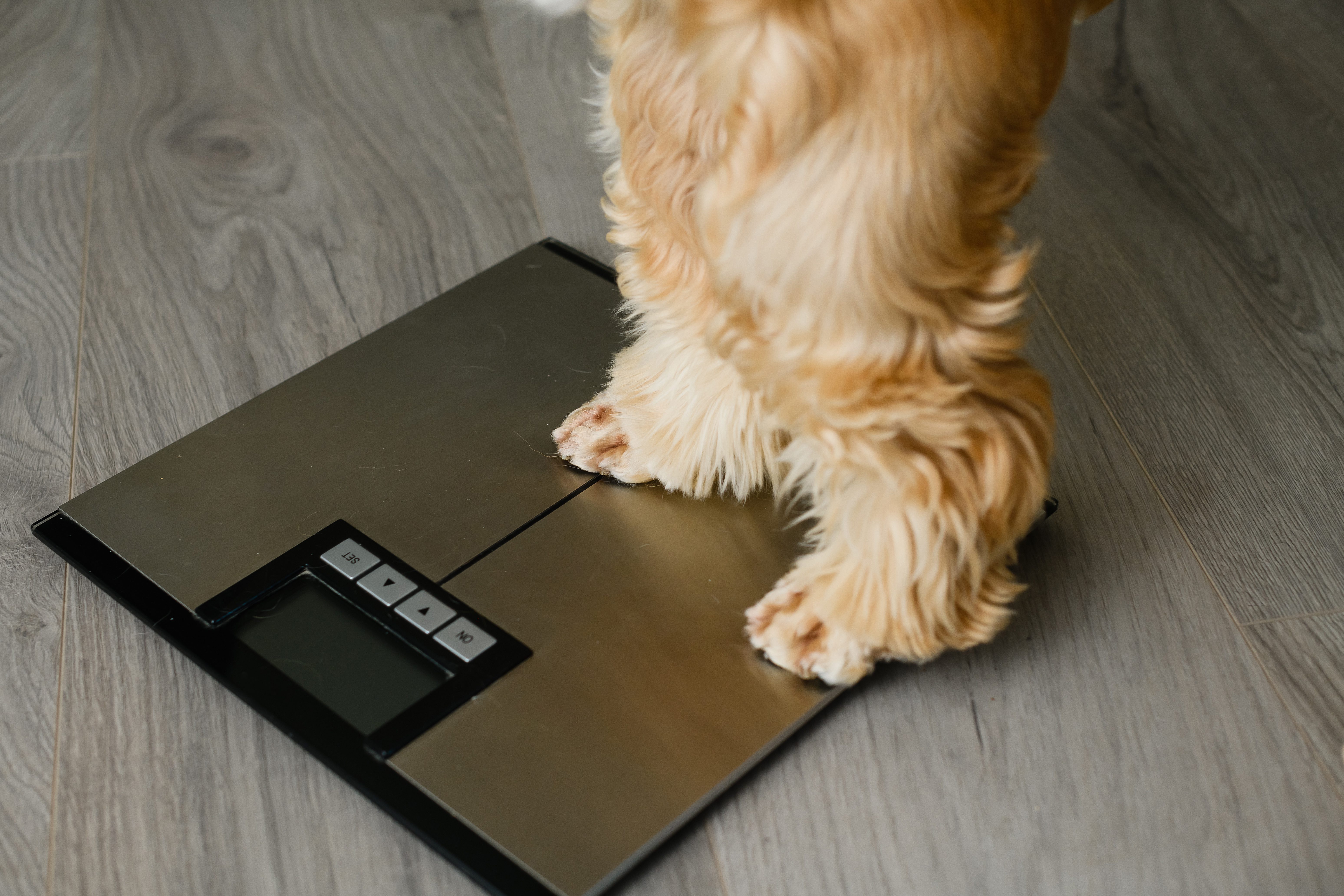
Home Remedies for Dog Coughing
From home, you can ensure your dog is warm and the air is well-ventilated and free of dust, smoke, and cooking fumes.
Keep your pet well hydrated by feeding wet food and plenty of water.
You can also give a teaspoon of honey every 8-12 hours.
Use a body harness rather than neck collar when walking your dog and keep walks short while they have a cough.

Need advice on your dogs cough?
Call us to discuss your dog’s cough, and we’ll help you determine the next steps.
If you feel your dog is unstable or in distress, contact our emergency vet. You can also search for your nearest emergency vet.
Continue reading
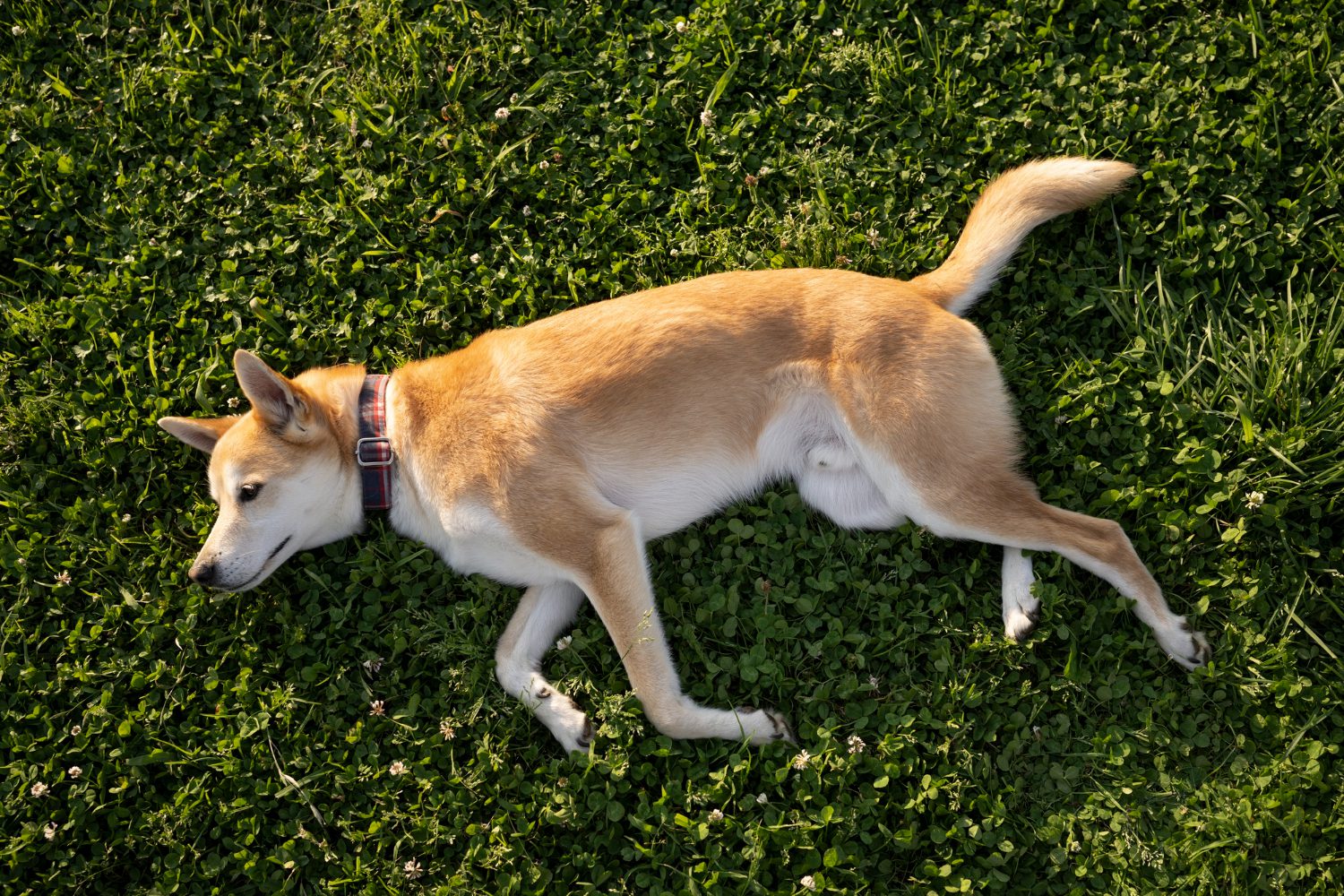
Signs of a Broken Tail in Dogs: Is it an Emergency?
Broken tail in dogs: warning signs and when it’s an emergency
Read article
Is a Dog Vomiting Blood an Emergency?
Is your dog vomiting blood? When to act and why it matters
Read article
Severe Allergic Reactions in Dogs
Severe allergic reactions in dogs: symptoms, causes and emergencies.
Read article